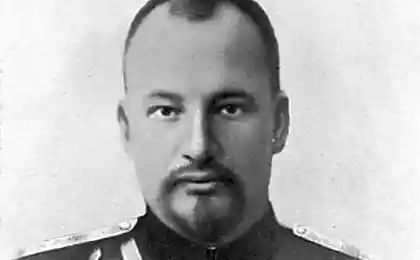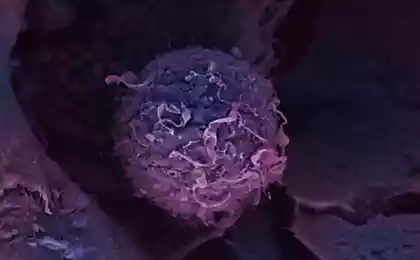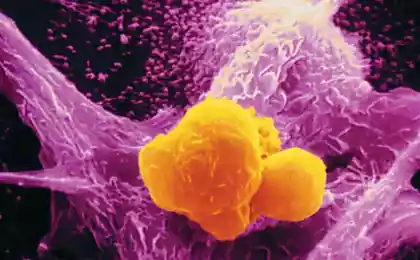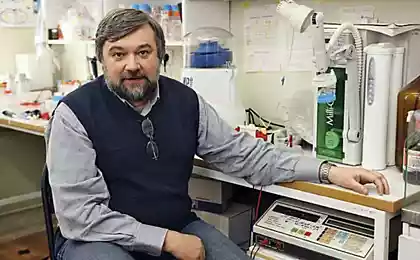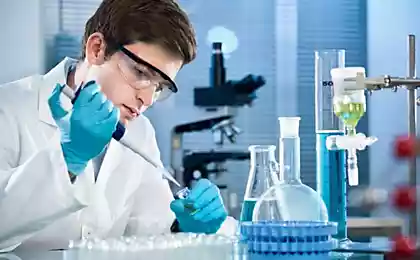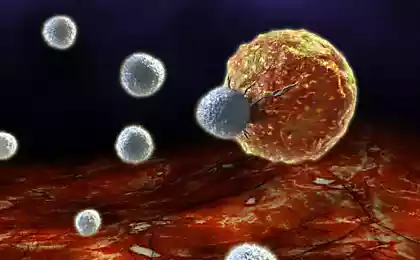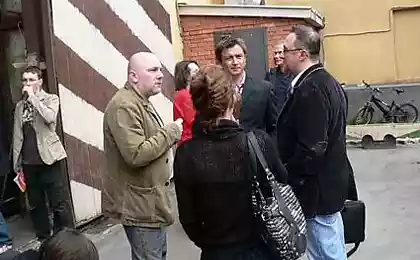604
Tumor cells live for themselves, cells are selfish
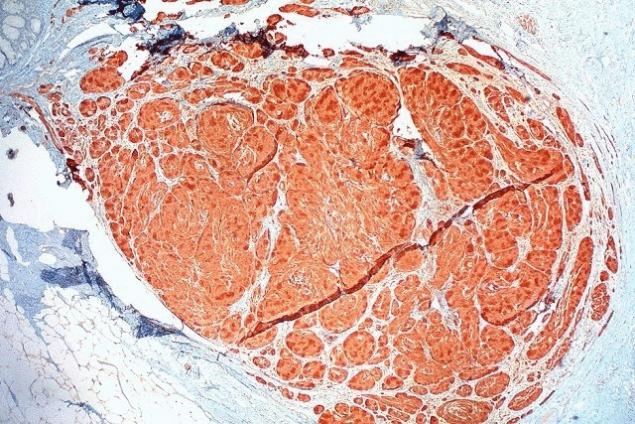
© Ed UthmanМатериал prepared on the basis of the radio program "Postnauka" radio Moscow Said. Lead editor of the project "Postnauka" Anna Kozyrev, the guest of the ether — doctor of biological Sciences, senior researcher, Institute of physico-chemical biology named after A. N. Belozersky MSU Eugene Cheval. What is the difference between "normal" cells in the body and their work from the cancer?
The paradox lies in the fact that tumor and normal cells at the cellular level is no different. They vary in their relation to the body. The cells of the body perform their functions, live and die as the body needs. Tumor cells live for themselves, cells are selfish. There's a good saying that tumor cells are cells with anti-social behaviour. This is the tumor.
The origin of the tumor in the end — it always changes the cell's genome, it may be mutations or other changes, but cancer is a genomic disease. There are hereditary diseases that are passed from generation to generation. Human cells are all the same source, but separate cells can mutate. If the mutation does not affect some important process, anything terrible will not occur. Ultimately, perhaps, mutate all the cells, because the gene is not eternal, because all around us cosmic rays, which can damage molecules of DNA, mutagens, etc. But the mutation may somehow affect the reproduction of a cell or its death.
The cells in the body have their own life cycle — they live and die. The process of death is clearly recorded programme, there are special proteins responsible for the cell at the right moment died the right way, so she just went to pieces, and fragmented, and then come the macrophages and these pieces of "ate". This is a complex programmed process. If the cell is to reproduce a little better or a little worse than die, it changed its properties. It is still not a tumor, it is only one mutation. Then among the descendants of someone can get another mutation, and the cell starts breeding, selection.
In fact, this selection — selection according to Darwin. There are plenty of random mutations, and then among the offspring with random mutations are selected those who are more out of control of the body. This process in most cases, lengthy. It is very rare that one mutation can lead to something similar to a tumor in a medical plan. However, cells gradually mutate, and selected the clones that are increasingly out of control of the body, becoming more antisocial, and these cells have very much. Tumors not only human but of any animal in the body quite a lot. Any mole is a tumor. But she didn't become a threat to the organism, that is was not a tumor, in terms of harm to the body, from a medical point of view. Yes, she has changed, Yes, the body does not need this mole, but it already is. It can be harmless, moreover, it can never become dangerous, as, for example, tumors of adipose tissue lipoma. Human life is simply not enough to accumulate mutations and transform into a dangerous liposarcoma, therefore, if the lipoma interferes move, do not spoil the appearance, to remove it is not necessary.
But at some point, can accumulate so many mutations that the tumor becomes a threat, then there is a medical issue: it is not just the changed cells, which are slightly different. When we talk about tumors, in most cases we think about this situation. But it is preceded by a long course of selection of clones with altered properties, with access from under the control of the body cells can live for himself, to multiply for himself, and, unfortunately, such cells and their behavior can kill the body.
Tumors can be caused by a variety of reasons. For example, Burkitt's lymphoma. Very unpleasant tumor, which cells multiply very quickly. Its development is associated with Epstein — Barr. This tumor is prevalent mostly in Africa. In Europe, in America among the Caucasian population is exotic. But in recent years it has become more relevant. This is due to HIV. This is a very serious illness, which is now learned not to cure but to keep. There are preparations that need to take life, they will hinder the development of the disease, and the patient will live. But at this point you may receive a tumor. And, as it turned out, this often just Burkitt's lymphoma.
— How the body acts on classical chemotherapy?
Classical chemotherapy is built on two simple things. Any normal cell in the body the death, and often the duration of its life very small. I love the example of the intestinal epithelium: the cells of the intestinal epithelium in the differentiated condition live for only 4-5 days, the limit of their week, and then they die. New cells are produced, the old die, there is a continuous stream of cells. There are cells that are updated more slowly, for example cells of the pulmonary epithelium. There are cells that are almost not updated or not updated as neurons. Nevertheless, cells can die. The tumor — cells which shut down the program right changing life stages: reproduction, differentiation and death. The tumor has blocked the program. Any chemotherapy, exposure to radiation, heat (now a huge number of different approaches) in most cases, the aim is to cause the program programmed cell death. In animals, as a rule, there are several types of programmed cell death, most often apoptosis, wherein the cell breaks up into pieces and then "intelligently" remove the macrophages. We can say that the task of the doctor is to relieve the swelling, and to induce in the tumor cells programmed cell death.
— That is, to make the cells again begin to die?
Yeah, a cage to shoot is impossible, but to cause the program which it contains. Worse happens when this program is broken. There is a very famous protein, p53, one of the most studied proteins. If it doesn't work, the cells are very bad go in programmed cell death and such tumors usually worse treated.
There are times when it is necessary to run not just the death, and differentiation. The cage remained at the stage of reproduction: it reproduces, multiplies and does not want to differentiate, to stop breeding. To work simultaneously and to reproduce is impossible, and such a cell is necessary to push in differentiation. For example, for the treatment of acute promyelocytic leukemia selected a very simple drug that causes cells to differentiate. It is not a cure the tumor; as a rule, optional use of chemotherapy, which will run in parallel cells in programmed cell death. Differentiating the cell to kill much easier than breeding.
— What are the methods of treatment of oncological blood diseases?
5 facts about the various targeted drugs, types of breast cancer and the future of targeted medicine
Now, when we are talking about hematologic cancers, leukemias, lymphomas, we apply the method of maximum impact, as if hit lightly, the tumor cells will survive and the tumor would relapse. But when such treatment die not only tumor cells but also of normal stem cells, which give blood. As long as there is selectivity, and we can't hit only the tumor cells, we beat all the stem cells, destroying them, and then it turns out that we killed and normal bone marrow. The only way to date is bone marrow transplantation.
— At what stages today can be diagnosed with cancer and how, in your opinion, will develop in this area?
Of course it is good to be diagnosed early. The tumor has its own history, tumor progression, it is necessary to know. If we know it, we can understand at what stage to catch a tumor. In the case of gastric cancer should be caught on stage polyps. Yes, they're harmless, it's just a growth in the stomach wall, which is perfectly visible when gastroenteroscopy. The tumor is an age — related phenomenon, it will take time that mutations had to accumulate. If, after 40 years makes gastroenteroscopy, the doctor sees a polyp, cut it, and then stomach cancer this man will not. But if you miss this point, the tumor may develop and require surgery. Especially can cause metastasis, and the situation will become more complicated. It is therefore important to diagnose the tumor in time. Of course, if polyps or cancer of the skin, which is visible to the naked eye, to diagnose easily. But if the tumor is deep? For such cases is developed by a huge number of methods. For example, right now in any clinic put response for tumor markers in several tumors, which are very common in Russia.
Tumor markers are usually proteins, which are detected by antibodies. In large clinics, there is a fairly wide panel of such tumor markers. If there is a danger that a person will have a certain type of cancer, it is better to be checked periodically. Incidentally, in the field of immunologic methods of early diagnosis a priority in science remains for Russia. The first tumor marker is alpha-fetoprotein, which opened Gary Israilevich Abelev. And of course, it should be our pride.published
Eugene Cheval, doctor of biological Sciences, senior scientific researcher, Institute of physico-chemical biology named after A. N. Belozersky MSU
Source: postnauka.ru/talks/30268
It is advantageous if the cultivation of berry bushes in an unconventional way?
To become a leader for others, first become a leader yourself

